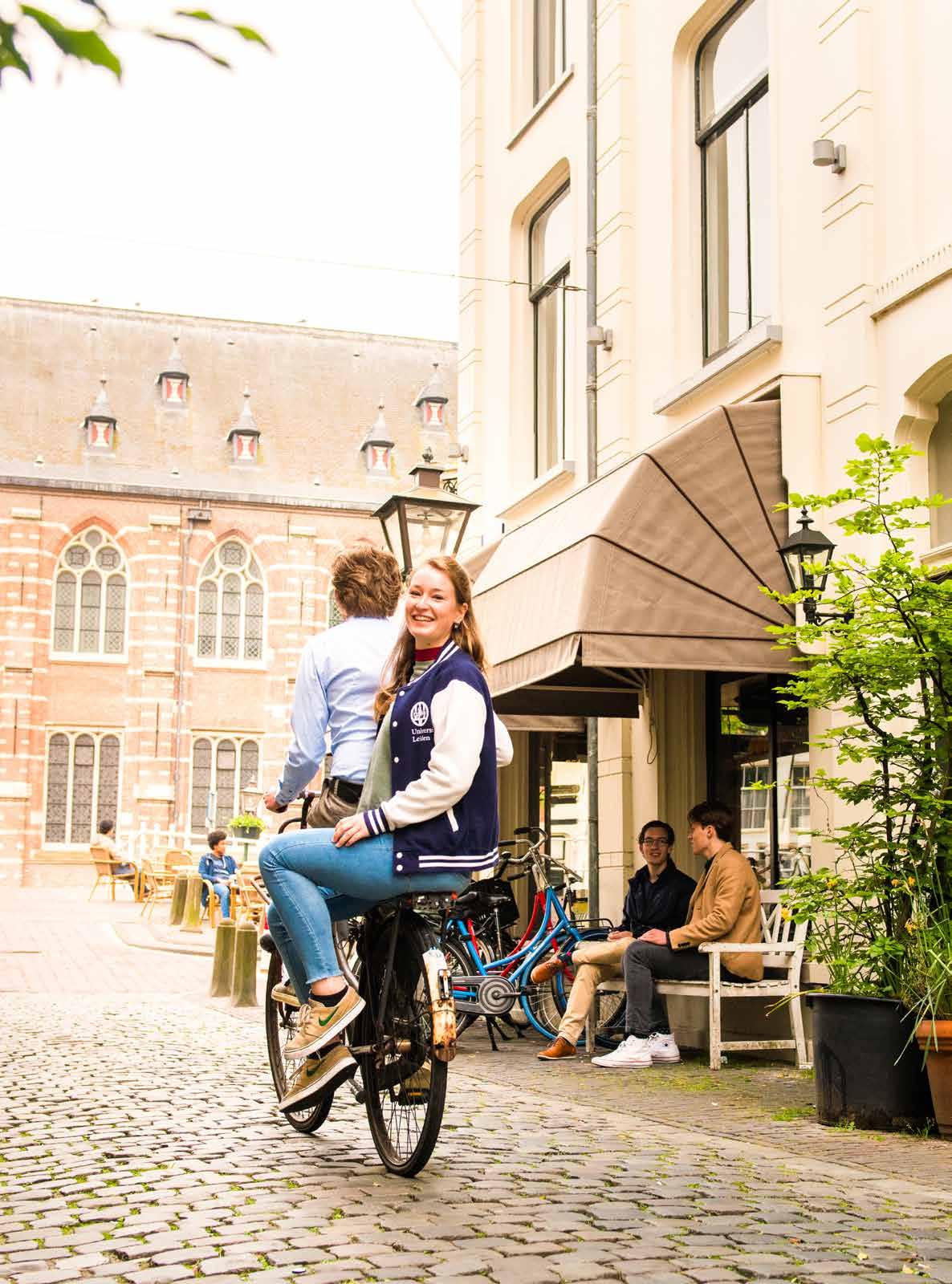
4 minute read
Social and Behavioural Sciences
from About us 2020
SOCIAL AND BEHAVIOURAL SCIENCES Putting people and society first
The Faculty of Social and Behavioural Sciences conducts high-quality research in the field of cultural anthropology, education and child studies, political science and psychology, and offers a wide range of degree programmes, organised along disciplinary lines.
The Faculty has earned a name as an international centre of social and behavioural science teaching and research. The academics at the Faculty work with their students on social challenges, and their conclusions are often of immediate value to society. As would be expected, the teaching, research and impact of the Faculty are closely intertwined.

RESEARCH The work of researchers in the social and behavioural sciences is interdisciplinary and internationally competitive, and is driven by urgent problems in society. These problems generally relate to the behaviour of individuals and their relationship with systems, such as family, school, social group, society and political institutions. These issues could be linked to large migration flows, changes in healthcare and education or decreasing political legitimacy. The effects of globalisation call for approaches and solutions from the social and behavioural sciences.
Research centre The Centre for Science and Technology Studies (CWTS) is a unique research centre that studies scientific research and its connections to technology, innovation and society. This includes data research. The CWTS has developed its own ranking of the 1,000 leading universities in the world. In this ranking, universities themselves choose the key indicators.
Graduate School The master’s, research master’s and PhD programmes at the Faculty are the responsibility of the Graduate School of Social and Behavioural Sciences.
TEACHING The student population at the Faculty is diverse and international. In its bachelor’s programmes, the Faculty gives its students a firm academic grounding and prepares them for leading roles in a complex society. It also trains them as researchers and teaches them skills for a career within or outside academia.
The four bachelor’s programmes at the Faculty have a mono-disciplinary slant and are strongly methodological. In the master’s programmes, the students conduct independent research in an international and interdisciplinary learning environment.
FACTS AND FIGURES 2019
6,140 students: 4,312 bachelor’s students and 1,828 master’s students
711 staff (510 academic and 201 non-academic staff)
Institutes: • Centre for Science and Technology Studies • Institute of Cultural Anthropology/Development Sociology • Institute of Education and Child Studies • Institute of Political Science • Institute of Psychology
26 doctorates
Stevin Prize 2019 for Andrea Evers.
BACHELOR’S PROGRAMMES • BA in Cultural Anthropology and Development Sociology • BSc in Education and Child Studies • BSc in International Relations and Organisations • BSc in Political Science • BSc in Psychology • BSc & BEd in Teaching
MASTER’S PROGRAMMES • MA in Cultural Anthropology and Development Sociology • MSc in Developmental Psychopathology in Education and Child Studies (research) • MSc in Education and Child Studies • MSc in Political Science • MSc in Psychology • MSc in Psychology (research)
Pieter de la Court Prizes 2019 The first three Pieter de la Court Prizes were awarded in 2019 to students Rose-Anne van Denderen, Rebecca Talbot and Willemieke Ligtenberg. They made a particular contribution to themes that Pieter de la Court raised as early as the 17th century. Their work for the Red Cross, the National Network for Student Welfare and the IncLUsion Foundation Leiden respectively was highly commended. On the photo (l-r): Rose-Anne, Rebecca and Willem Jan de Voogd from IncLUsion Leiden, who accepted the prize on behalf of Willemieke.

City photographers Each year, the City Photographer Foundation appoints a new photographer for Leiden. In 2019, the Foundation took a new approach, appointing not one but seven photographers. These photographers – four anthropology students and three members of the Cultural Anthropology staff – each tackled a different theme. Lecturer Simone de Boer explored the world of community work. De Boer: ‘I went to the WijkRuilbus, for instance, a bus where members of the community can swap clothes and other things. And I went to meetings at a community centre, which is also a breeding ground for creative initiatives.’


Stevin Prize for Andrea Evers Health psychologist Andrea Evers was awarded the Stevin Prize in 2019. She is heading an innovative, groundbreaking research programme on the influence of psychological factors on physical complaints and symptoms. She garnered global fame for her research into placebo effects and their counterparts, nocebo effects. Her research will significantly affect those working in medical practice.
Gift for psychology and financial literacy The Faculty’s Department of Social, Economic and Organisation Psychology received a gift of over two million euros from the Utopa Foundation in 2019. This will be used to establish a fund for teaching and research and a new knowledge centre that will help improve financial literacy in the general public. In the photo (l-r): Prof. Wilco van Dijk, Stan de Klerk-Waller (LUF), Loek Dijkman (Utopa), Rector Magnificus Carel Stolker, Paul Wouters (Dean) and Prof. Eric van Dijk.

More information: www.universiteitleiden.nl/en Sign up for our newsletter: www.leiden.edu/newsletter

Twitter.com/UniLeidenNews Facebook.com/UniversiteitLeiden Youtube.com/UniversiteitLeiden Instagram.com/universiteitleiden










